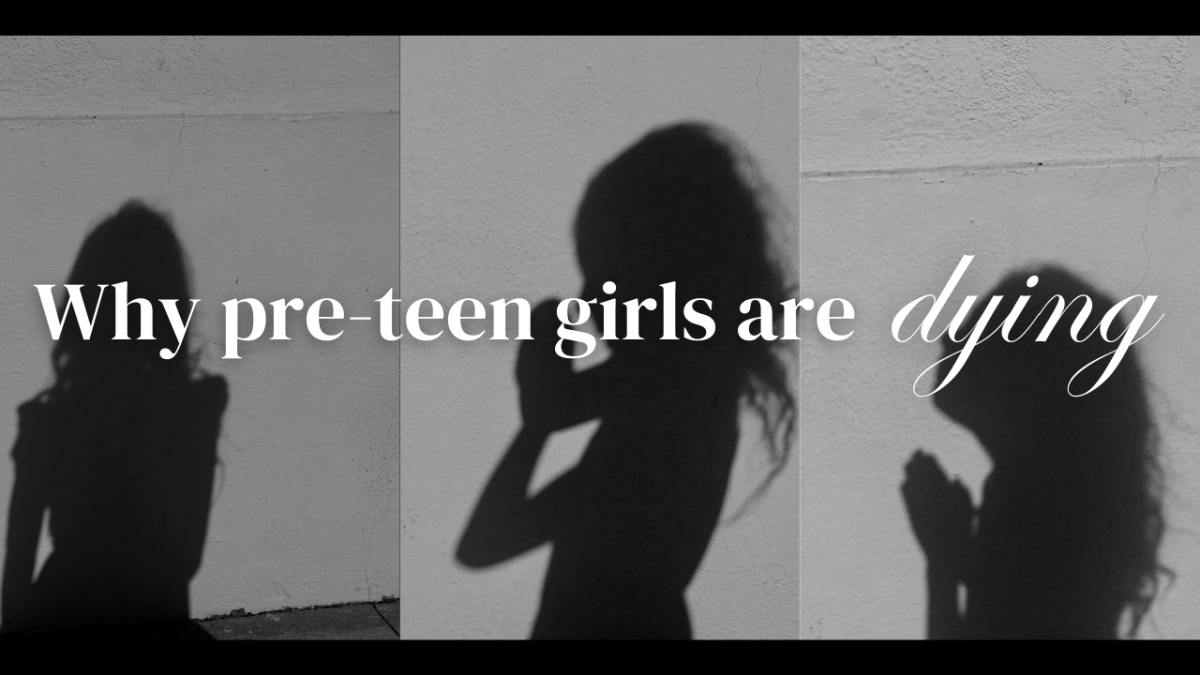The concept of girlhood has been picked and prodded at since the beginning of time. What should a little girl wear? How should she talk? What activities should she partake in? To be a young girl is to be a question. A discussion that lies on the tip of adult tongues forever. Recently, in current media, the discourse about young girls has surrounded whether or not they are acting “too grown.” The only answer to this question is a blunt statement: The innocence of young girls is being stolen, and blissful youth is dying.
According to the CDC, early childhood starts from birth and ends at the age of five years old. Middle childhood starts at the age of six and ends at eleven. Young teens (primarily known as pre-teens) are considered ages twelve up to fourteen.
There are many life stages when people experience defining moments that heavily influence how they carry themselves. Young teenhood is one of them, and controversially, one of the most important.
For young girls being a pre-teen is when they might first experience the pressures and expectations society places on women.
In early civilizations, girls were strictly limited in what they could do outside their homes. A girl’s value was not how well she did academically it was based on how she excelled domestically and nothing more.
As civilizations advanced, girls were given more opportunities. Education was made available for all genders in some countries. Although young girls were finally allowed to progress, some problems arose.
In today’s modern world, gender progression is heavily promoted through social media. Most young teens are on social media. With social media becoming grounds for all different types of lifestyles to merge, it solidifies itself as a place where new cultures are born.
Recently a culture of excessive consumerism and hyper-sexuality has overtaken the feeds and ForYou pages of young girls around the globe.
To be a girl is to be a question not only to society but to oneself.
It is in human nature to use reference groups in order to shape one’s own personality. The reference groups for young girls are the young adult influencers popularized across all social media platforms.
No mainstream market is explicitly geared towards influencing young girls to act according to their age. This market not existing is what forces young girls to consume media from older Kylie Jenner-esque influencers on the daily.
An Inside View
Mrs. Summer Sieller teaches tenth-grade English and Women’s Voices at North Penn High School.
Sieller had input on what both she and her students have talked about in class regarding the different pressures put on women by society.
“We actually do talk about this in my class. A lot of times, we talk about social trends and pop culture references. In doing so we’ve had very candid conversations about how there is a lot of pressure that society can put on women and young girls to feel like they need to fit a certain mold that society may expect of them and what that looks like,” Sieller explained.
Sieller also had input on what this pressure can look like for women and young girls.
“I think it looks different for everybody and how much we allow other images to infiltrate our own minds throughout the day. I feel as though I can share some of these feelings being a middle aged woman, having grown up without that pressure as a twelve, thirteen, or fourteen year old, but definitely seeing how it has become so mainstream for young girls feeling that pressure at a much younger age than it would have been when I was growing up,” Sieller elaborated.
In recent news, there have been major complaints about young teens making up the majority of customers in cosmetic stores.
The answer to this is simple: Thirteen-year-old girls are filling up beauty stores across the globe simply because there is nothing else for them to do.
There is little to no promotion of healthy and mature lifestyles for young girls because there is no mainstream spotlight on improvements for the youth.
The conversation on how modern girlhood should be is full of complaints and opinions but absolutely no action.
For the longest time people have viscously attacked young girls for how they act under the disguise of being “concerned for their well-being”. Young girls are now becoming victims of online bullying for having an interest in name-brand beauty products. An interest that they are forced to divulge because that is all they are fed online.
To be a girl is to watch and feel. Adults have positions of power, and some use this power to blatantly tear down young girls for things they can not control.
Pre-teen girls who watch the discourse online and are victims of this bullying are left at a dead end. There is nothing left they can do. Young girls will be ridiculed regardless of how they act. Their only option is to become nothing, and that is what is being forced on them in today’s society.


